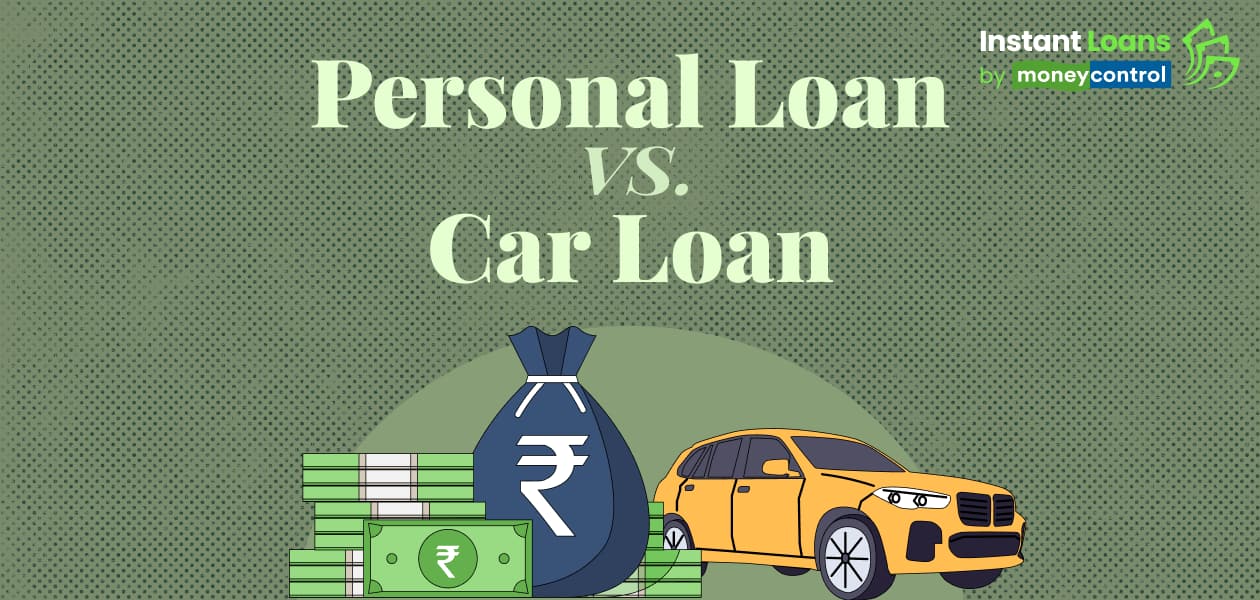03 June, 2025 | 11:01 IST

Thinking about buying a car? One of the first things you will need to figure out is how to pay for it, and choosing the right loan can make a big difference. Most people go for either a personal loan or a car loan to buy their dream car.
Both options can help you to buy the car you want, but they come with different interest rates, repayment terms and flexibility.
Table of Contents
Personal loans are unsecured, which means you don’t need to offer any collateral. They give you the freedom to use the money however you like, including buying a car. Car loans are secured loans made just for vehicle purchases. If you can’t repay a car loan, the lender has the right to take back the car.
Though personal loans offer more flexibility, they usually come with higher interest rates since there is no collateral involved. Car loans generally have lower rates because the car itself acts as security.
That said, no matter which loan you choose, the most important thing is making sure you can repay it on time. Missing payments can mess with your finances and lead to extra charges.
Moneycontrol has partnered with eight trusted lenders to offer fully digital personal loans of up to Rs 50 lakhs, with minimal documentation. To apply, choose an EMI plan that suits you, enter your personal details, and complete the online KYC process. Enjoy competitive interest rates starting at just 10.5% per annum.
Debt repayment means paying back the money you borrowed, along with interest, through regular instalments over a pre-defined period.
Car loans usually come with longer repayment terms, which is why their interest rates are generally lower compared to personal loans.
Personal loans often have shorter repayment periods, which can lead to higher interest rates for the same loan amount.
Personal loan debt repayment refers to the process of repaying the borrowed amount within a specified time period. As these are unsecured loans, the interest rates are generally higher. The repayment period typically ranges from one to five years.
Personal loans are repaid in EMIs, or fixed monthly instalments. You can select a tenure that works for you, which will allow you to set a monthly payment that is more manageable. This will enable you to pay off your outstanding debt as soon as possible.
Personal loans are closely linked to the Debt-to-Income (DTI) ratio, which is used by lenders to determine your ability to repay a loan before approving your application.
A high DTI ratio, usually above 40-50%, means a large portion of your income already goes towards existing debts like credit card bills, which shows higher risk for the lender.
If there is a low DTI, usually below 35%, then the lender considers it as low risk and can easily grant you a loan.
Let us say you are buying a car worth Rs 15 lakh. If you go for a car loan at 9% interest for 5 years, your EMI would be around Rs 31,150, bringing the total to about Rs 18,68,250.
Since personal loan interest rates are higher, if you choose one at 13% interest for the same duration, your EMI would increase to Rs 34,150, and the total you would end up paying would be around Rs 20,50,000.
In this case, you would pay about Rs 1.8 lakh more with a personal loan.
If you are looking for a personal loan, you can get instant access to loans up to Rs 50 lakhs from eight lenders through Moneycontrol’s lending platform. The entire process is 100% digital. Choose your EMI plan, fill in your details and complete a quick online KYC. With interest rates starting at just 10.5% per annum, borrowing has never been easier.
Both personal and car loans are good options and come with their own set of benefits and drawbacks. A car loan is probably a viable option if you are searching for cheaper interest rates and smaller EMIs, while a personal loan is better for those who need a flexible repayment option without pledging any collateral.
Share it in your circle
Table of Contents
Explore Top Lenders for Instant Loan upto
Get Instant Loan up to ₹50 Lakhs with Zero Paperwork from Top Lenders
 100% Digital
100% Digital Quick Disbursal
Quick Disbursal Low Interest Rates
Low Interest Rates